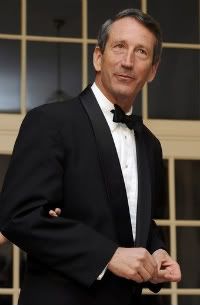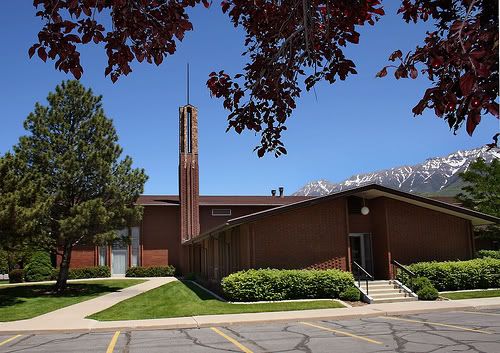I think that mental adultery is a sin. In fact I believe it usually leads to the loss of trust among married couples when a spouse engages even in something consider harmless like mental adultery. I am sure that many LDS would disagree thinking it a harmless action.
I remember years ago when Jimmy Carter, a devote Christian said in an interview published in the November 1976 issue of Playboy magazine, then-Governor Carter talked about the role of religion in his life. In one part he said:
" I try not to commit a deliberate sin. I recognize that I'm going to do it anyhow, because I'm human and I'm tempted. And Christ set some almost impossible standards for us. Christ said, 'I tell you that anyone who looks on a woman with lust has in his heart already committed adultery.' I've looked on a lot of women with lust. I've committed adultery in my heart many times. This is something that God recognizes I will do--and I have done it--and God forgives me for it."
Even though people made fun of him he was serious that as a good Christian he considered it a sin.
If you talk to most woman they admit to fantasizing about various men sometimes specific men and other times generalized men like a sheik, a movie star, a policeman etc. Many men also indulge in this kind of fantasy thinking about a co-worker or someone they do business with or go to church with.
Jesus Christ was very specific when he said:
Behold, it is written by them of old time, that thou shalt not commit adultery;
But I say unto you, that whosoever looketh on a woman, to lust after her, hath committed adultery already in his heart.
Behold, I give unto you a commandment, that ye suffer none of these things to enter into your heart;
For it is better that ye should deny yourselves of these things, wherein ye will take up your cross, than that ye should be cast into hell. (3 Nephi 12:27-30.)
Just like masturbation many Mormons and Christians justify mental adultery as a victimless sin. No one is harmed so no harm no foul they say. It is just harmless.
Neal A. Maxwell in his book Flood of Wonderful Light denounces such an attitude:
Lest we rationalize the indulging of ourselves, holding on to ungodly things because these seem so private, we have only to look at Sodom and Gomorrah to see what cumulative misery consenting adults caused through their so-called victimless crimes!
He said in his book We Talk of Christ We Rejoice in Christ: "Those who are filled with lust will not only commit mental adultery but may commit actual adultery, fornication, or other things just as bad that are "like unto it." (D&C 59:6.)
On the few occasions when I have let my mind wander and imagine a specific person I know it is demeaning and debasing for me to think of some woman I am not married to as an object for my sexual gratification. I am not sure I would ever have sex with anyone other than my wife.
Some people would say of come on just because you think about having sex with someone doesn't mean it will ever happen. In cognitive studies they find that the mind cannot distinguish between a mental action and a physical action. When we engage in fantasying the mind imprints it on our brain just like we really did it.
I think it weakens our will to remain faithful to a spouse when we are having marital problems if they are fantasying about someone else. Pretty soon they begin to act on those images. It might be a subtle progression like email or chatting with the person on the internet or flirting with them in the workplace or at church.
Even the Lord tells us that our very thoughts will condemn us:
For our words will condemn us, yea, all our works will condemn us; we shall not be found spotless; and our thoughts will also condemn us; and in this awful state we shall not dare to look up to our God; and we would fain be glad if we could command the rocks and the mountains to fall upon us to hide us from his presence. (Alma 12:14.)
I feel that the Church is clear that we should learn to control our thoughts. Personally I believe that even fantasizing can be a destructive thing in that it erodes trust when you spouse is thinking about others. In the LDS Church we promise to have our desire for our spouse alone. I think the Prophet Joseph Smith was wise when he put us under a covenant to do this.
She Said:
I don't think many Mormons would disagree with you on this one.
BUT... let me see if I can say this in a discreet manner... it seems like you are saying that you are against role playing activities within marriage. Should I get rid of that little French Maid costume? Or are you just saying a person shouldn't fantasize about another person who is real?















